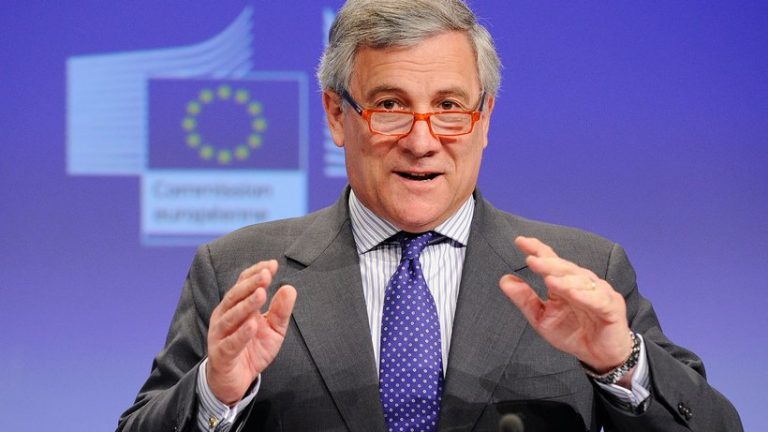Sir, Madam, dear journalists,
On Monday, the Bureau of the European Parliament stopped a reform of the General Expenditure Allowance (GEA) by a narrow majority. Today, the Conference of Presidents (CoP) has critically discussed the Bureau’s decision and decided to reinstate the Bureau working group that drafted the reform proposal that the Bureau had suspended on Monday. Greens, Left and ECR groups called for a reconsideration of Monday’s Bureau decision. EPP and S&D remained unusually silent during the meeting of the CoP. Together with the Liberals, 4 of the 8 groups asked for a better compromise by the working group.
The reason for the criticism is both the contradiction between the Bureau decision and many plenary decisions for more transparency and accountability as well as the unusual decision-making procedure in the meeting of the Bureau on Monday 2 July. Vice-President Evelyn Gebhardt (German Social-Democrat, SPD) had tabled an amendment to the draft decision. She wanted to support the obligation to employ a paying agent, but in the event of a breach of duty, she asked to delete a reference to an alternative audit by the Parliament’s administration. However, Members would lose their GEA funds until they present the confirmation of an audit. Contrary to customary practice, Parliament’s President Antonio Tajani (Forza Italia) had not allowed this amendment to be discussed or voted on. Gebhardt’s decisive vote against the reform followed this refusal of discussion by Tajani. The discussion could eventually happen now if a new meeting of the working group would be convened. The emerging compromise including Gebhardt’s amendment would then have at least reached an even split of 7 to 7 vice-presidents. The two remaining “no” votes of the Social Democrats, the Romanian Ioan Mircea PAŞCU and the Pole Bogusław LIBERADZKI, would then possibly vote differently. Today’s criticism by ECR Group President Syed Kamall (Tories) could also lead to a different vote by ECR Vice President Zdzisław KRASNODĘBSKI (PiS). He had voted “no” on Monday with the Christian-Democrats (EPP).
Today’s debate among the group presidents was also the result of a clash in plenary yesterday between Green Group President Philippe Lamberts and Vice-President Rainer Wieland (CDU), who introduced the draft resolution to the Bureau and voted against the reform. Yesterday at 12h30 Lamberts referred to the numerous demands of the plenary for more transparency and accountability on the GEA funds. He asked the Bureau to reconsider the decision. Otherwise, the Conference of Presidents would have to look into the matter. Rainer Wieland rejected this. The videos of the statements can be found online, Philippe Lamberts: http://www.europarl.europa.eu/plenary/EN/vod.html?mode=unit&vodLanguage=EN&vodId=1530700376873# and Rainer Wieland: http://www.europarl.europa.eu/plenary/EN/vod.html?mode=unit&vodLanguage=EN&vodId=1530700434988#
To protect the good name of the European Parliament it would help if the eight vice-presidents who voted against the reform support the re-establishment of the working group and a better compromise for more transparency and accountability. Under growing pressure from anti-European populists, we should put our own house in order to work together against corruption and for the rule of law in all EU Member States.
With kind regards
Sven Giegold
BACKGROUND: The reform proposal by the EP Bureau WG
IMSM Article 64.
- On taking up his or her duties, each Member shall forward to Parliament’s relevant department details (IBAN number, BIC (SWIFT) code and address of the bank) of at least two bank accounts in his or her name intended to receive payments in respect of the salary provided for in Article 10 of the Statute, the other allowances and the reimbursement of other expenses.
2.new One of these accounts shall be used exclusively for the payment of the general expenditure allowance laid down in Section 3 of the present Implementing Measures. Members shall only use this account for payments which are defrayable under Section 3 of the present Implementing Measures. No other payments, irrespective of their originator shall be transferred into this account. Any exceptions must be justified by supporting documents.
IMSM Article 28a:
- Members shall employ a natural or legal person that possesses, at the minimum, the qualifications required by Article 35-2 to document their use of the funds made available by means of the General Expenditure Allowance (GEA), to seek annual confirmation by the end of May that they have complied with the provisions of this Implementing Measures. The natural or legal person chosen conducts the check in accordance with the professional standards laid down under the applicable national law. The confirmation shall be published after its communication on the Members’ page on Parliament’s website. Failing to communicate will result in publishing the information about a missing confirmation and could result in an administrative check in addition to the measures foreseen in Article 67.
- Members are free to publish any additional information related to the General Expenditure Allowance in whole or in part on their personal websites. Costs arising from appropriate publication shall be met from the GEA.
- Members shall pay back any unused amounts to Parliament. In case of amounts which are defrayed in the form of a lump sum, this obligation only applies to the general expenditure allowance under Section 3 of the present Implementing Measures, which shall be paid back at the end of the mandate at the latest.
Evelyn Gebhardt’s amendment was to rephrase the last 2 sentences of article 28a (1):
The confirmation shall be published after its communication to Parliament’s financial authorities on the Members’ page on Parliament’s website. Failing to communicate will result in publishing the information about a missing confirmation.

